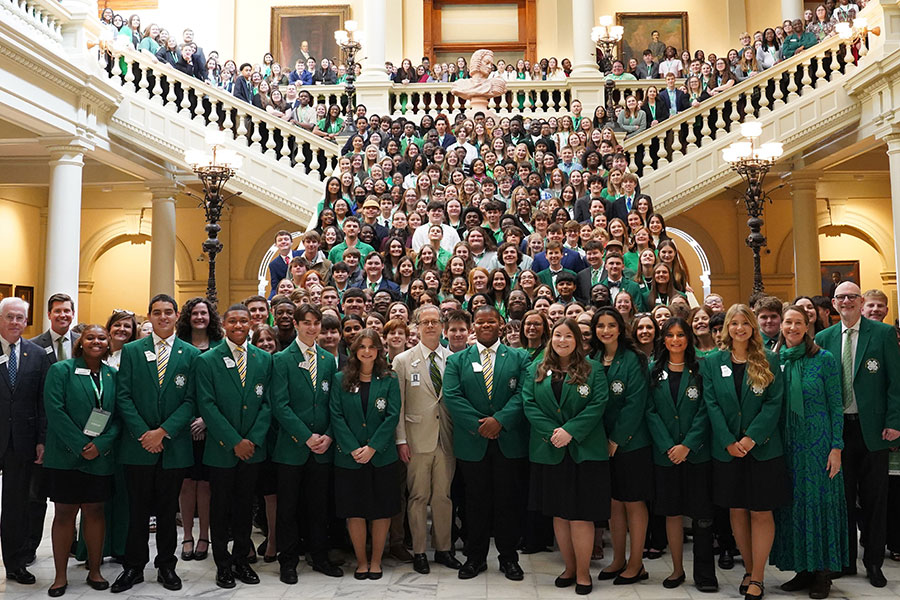By Chowning Johnson
University of Georgia
Hurricane Ivan slammed Grenada Sept. 7 with the full force of its 130 mph winds, killing 39 people. The island, 12 miles wide and 21 miles long, was devastated. About 10 percent of its homes were destroyed, Kanemasu said, and another 80 percent were damaged. More than 90 percent of its forest and agriculture were stripped.
U.S. Secretary of State Colin Powell visited Grenada after the hurricane to offer U.S. economic aid. He then contacted Carter and suggested he visit Grenada to offer its citizens encouragement and hope during their recovery.
"You got the feeling from talking to the people that the psychological trauma was nearly as great as the physical toll," Kanemasu said.
Mission team
Carter assembled a team of specialists to accompany him to Grenada and help survey the damage. Among those he recruited was Kanemasu, renowned for his expertise in international agriculture.The director of international agriculture and assistant dean in the UGA College of Agricultural and Environmental Sciences, Kanemasu didn't know Carter before the trip. He didn't know he would be visiting Grenada, either, until three days before he left on the mission.
Other experts from Emory University, Georgia Tech, James Lee Witt and Associates and the Carter Center joined the group.
Carter, Kanemasu and Grenada Minister of Agriculture Gregory Bowen assessed the damage to the island's crops. During their investigation they were unable to find any live nutmeg trees.
'Mind-boggling' damage
"The damage to the tropical, green, 'Spice Island of the Caribbean' was mind-boggling," Kanemasu said. "What was once a lush forest is now a denuded bunch of tree trunks."Grenada, a relatively poor country, depends greatly on its agriculture, and nutmeg and other tropical tree crops have been the mainstay of farming there. The island is the No. 2 producer of nutmeg in the world.
Carter also met with Habitat for Humanity aides, who are already building new homes on the island.
"It was a very quick trip," Kanemasu said. "But we're making some recommendations that we feel must be done before they can begin to receive donations from other countries, including the United States."
Top need
Topping that list is establishing a single person or office that will be responsible for the reconstruction effort and administering relief funds."Right now when you ask who's in charge, they mention different people," Kanemasu said. "If they don't designate someone to oversee the project, people won't donate funds. It will help things move more smoothly."
Kanemasu said he hopes UGA will play a role in the reconstruction of the island's agriculture.
(Chowning Johnson is a student writer with the University of Georgia College of Agricultural and Environmental Sciences.)






